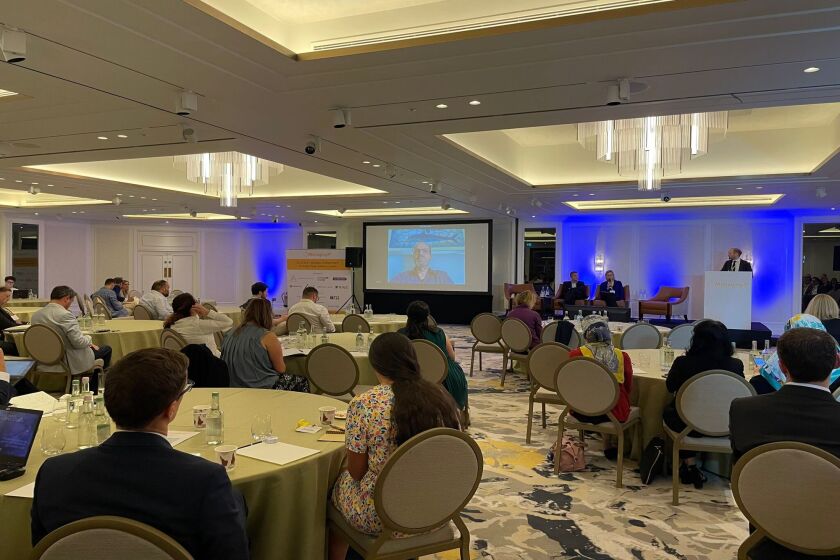Collective licensing pools could help fix the broken patent system, auto industry leaders claimed at Managing IP’s Intellectual Property and Innovation Summit Europe in London last Thursday, June 16.
Industry leaders from the automotive and telecoms sectors debated the future of standard-essential patent (SEP) licensing over two days of panel discussions.
Speakers from the auto sector argued that the European patent system, especially in Germany, was skewed too much in SEP owners’ favour.
One solution, they suggested, could be for carmakers to collectively negotiate SEP royalties with patent owners.
New pool proposal
Kai Brandt, head of patents electrics/electronics at Audi in Munich, told the conference that Germany’s automatic injunction made it hard for automakers to hold their own in patent licensing negotiations.
“In the end, we will have an imbalanced system where those companies which can obtain injunctions will profit too much,” he said.
Brandt said auto component makers were generating a lot of IP and finding new ways of making connectivity useful for drivers.
Unlike SEP owners, though, they aren’t able to leverage them or obtain injunctions, he said.
“Now we see that only those companies which have patents upstream can make money from them,” he said.
The Audi patents head suggested that carmakers should form a pool for negotiating licences with cellular SEP owners.
That controversial idea, previously floated by figures associated with German carmakers including Volkswagen, continued to be a topic of debate throughout the conference.
Linus Eklund, group director of patents at Volvo Group in Sweden, said it could help redress an imbalance in negotiating power.
“But we don’t know where we stand with competition issues,” he admitted.
Clemens Heusch, global head of dispute resolution at Nokia in Munich, noted that others on the SEP owner side had concerns that a licensee pool would amount to a buyers’ cartel.
“It risks being an exercise in collective holdout,” he warned.
“It might work if the aim is really just to have one consolidated process, but not if members of the group just don’t want to commit to anything,” he added.
Lessons for the IoT
Panellists considered whether other manufacturers in the broader internet of things (IoT) sector would face similar issues when licensing cellular SEPs for their products.
As Eklund noted, automakers are a recent entrant to the world of SEP licensing and didn’t previously have much in-house expertise on how it worked.
One of the thorniest SEP issues in the auto industry was patent owners’ insistence on only licensing to car manufacturers instead of component makers.
The success of the Avanci pool, which now has nearly all major German carmakers signed up as licensees, has mostly settled that debate in favour of the patent owners.
Heusch said this worked best for the auto sector, where there were many suppliers and it wasn’t always clear whose parts carmakers were using.
But SEP owners could be open to licensing at the component level in other IoT sectors, Heusch said.
“We’re not saying end-product licensing is the one and only solution.
“If you have one company supplying hundreds of start-ups, it might make sense to license to that supplier,” Heusch added.
John Sideris, principal licensing counsel at Philips in New York, suggested that patent pools like Avanci offered a model that could make SEP licensing easy for smaller IoT businesses.
“Patent pools provide a solution to smaller companies who don’t have the know-how or the capacity to handle bilateral licensing negotiations,” Sideris said.
In-house counsel, private practice lawyers and other professionals gathered on June 15 and 16 at Managing IP’s Intellectual Property and Innovation Summit Europe for panels on patents, trademarks, trade secrets and other IP issues.











